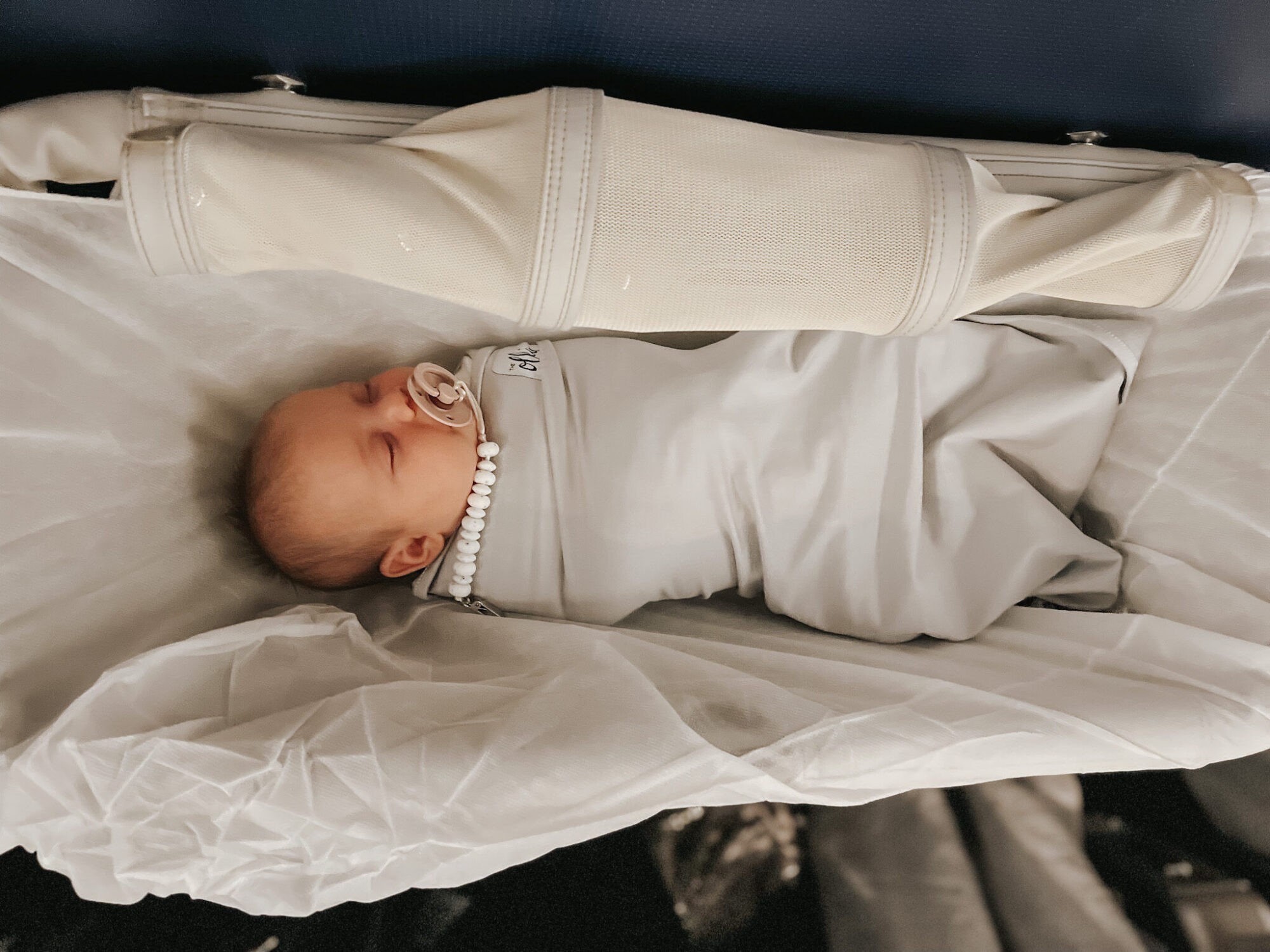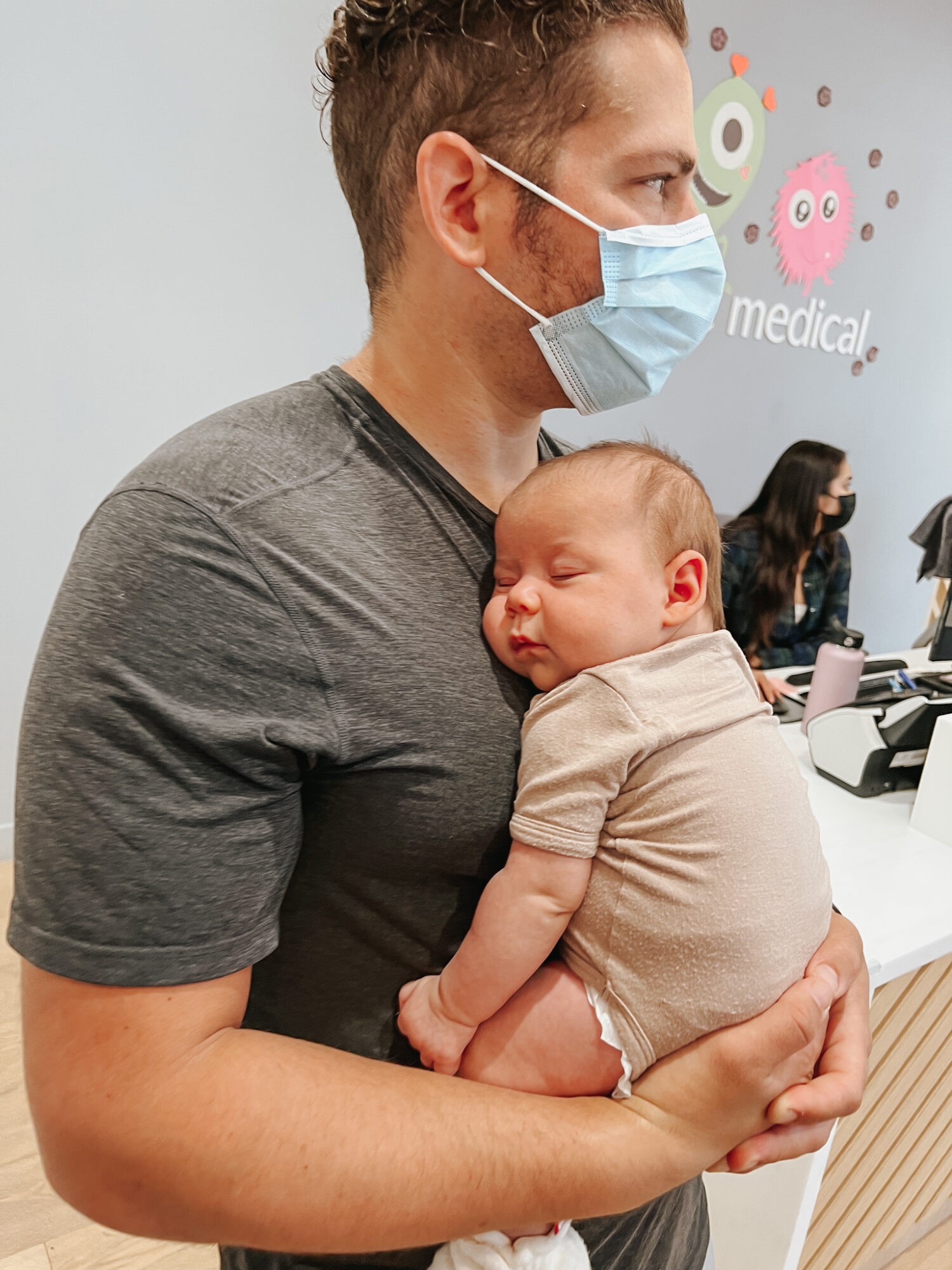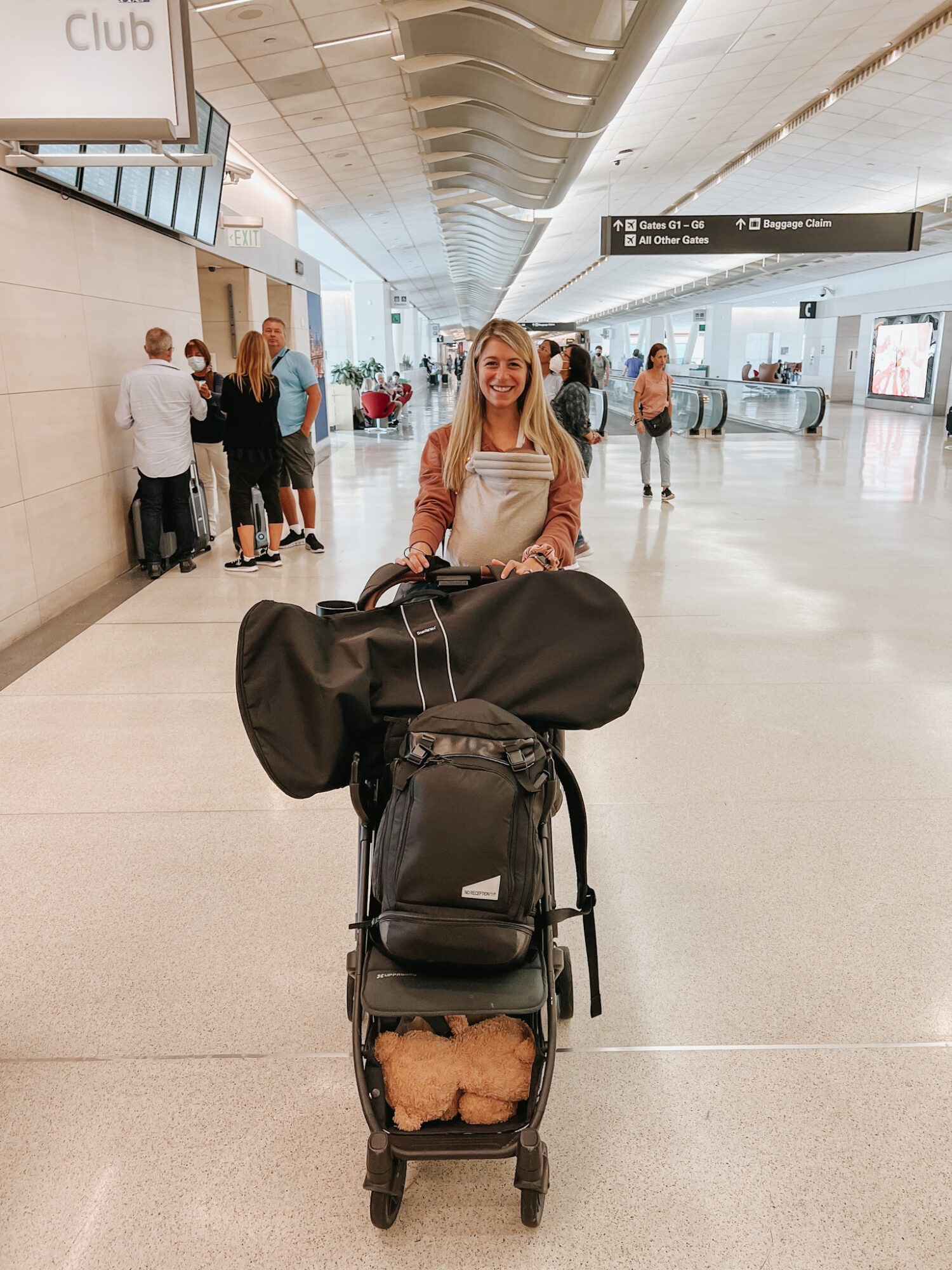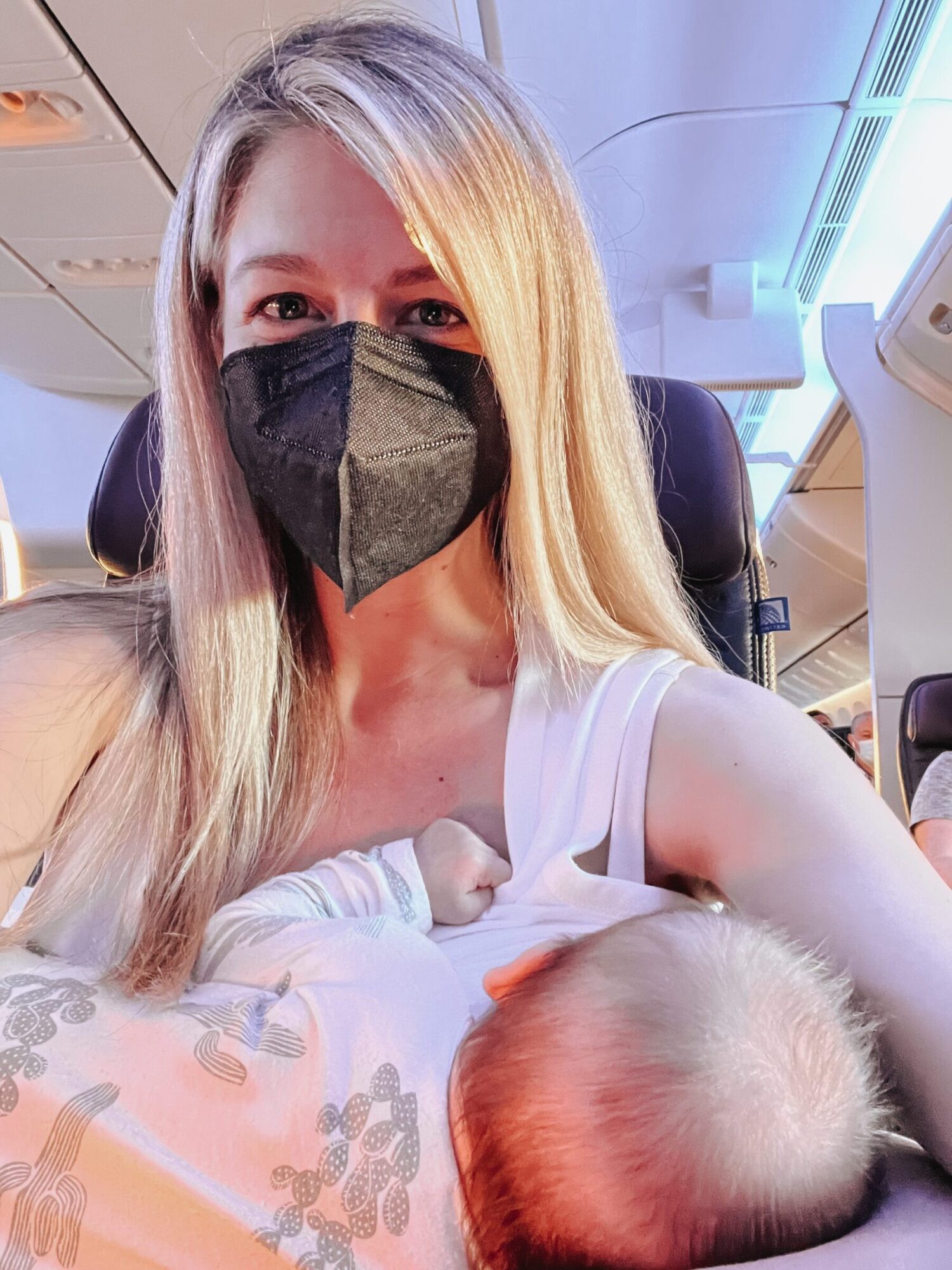Bringing your baby along on international adventures might seem daunting, but with proper preparation, it can be a rewarding experience. Many parents find that the third and fourth months of a baby’s life are a great time to start traveling. Babies at this age often sleep through flights, don’t require their own seat, and are easily transported. However, planning is key. Here’s what you need to know about traveling internationally with a baby.
1. Booking Flights and Seats in Advance
Ideal Timing
Plan your trip well in advance. Aim for dates when your baby will be at least 8 weeks old. Most pediatricians advise waiting until your baby is 2 to 3 months old, as their immune system is still developing. Always consult your doctor for personalized guidance.
Ticket Considerations
Opt for refundable tickets. While they may be more expensive, the flexibility is invaluable should you or your baby be unable to travel. Travel insurance is also something to consider based on your specific needs and circumstances.
Securing the Best Seats
Book well in advance to increase your chances of securing bulkhead seats. These seats offer extra space and are often equipped for airplane bassinets, eliminating the need to purchase an additional seat for long flights. Confirm with your airline which seats have bassinet access, as this can vary.
 airplane bassinet
airplane bassinet
Upgrading Your Flight
Consider upgrading to Premium Economy for more space. If planned far enough in advance, credit card bonus points can be used to upgrade to Business Class.
2. Obtaining Essential Documents
Birth Certificate and Social Security Number
Apply for your baby’s official birth certificate and social security number immediately after birth. The “certified birth certificate” (issued by your city, county, or state) is required for a U.S. passport. Double-check that both parents’ names are printed correctly on the birth certificate.
Expediting the Process
Contact the hospital administration ASAP to ensure they submit the necessary paperwork to the City/County/State promptly. Expedited services may be available for an additional fee.
3. Completing the Passport Application
Form DS-11
Complete Form DS-11, the official application for your infant’s passport. You’ll need your baby’s social security number and basic information. The form can be found on the official website. Do not sign the form until your passport appointment.
Required Documents
Submit the original copy of your baby’s official birth certificate (it will be returned) and a photocopy. Both parents must submit their IDs (passports or driver’s licenses) along with copies.
Scheduling the Appointment
Schedule your passport appointment as soon as possible, even before your baby arrives, if feasible. Ensure your identification copies are on white, 8.5” x 11″ standard paper, black and white, and single-sided.
4. Attending the Passport Appointment
In-Person Appointment
Attend the in-person appointment with both parents/guardians present. If one parent cannot attend, a “Statement of Consent” (Form DS-3053) must be filled out and notarized, along with a copy of the non-appearing parent’s government-issued photo ID (front and back).
During the Appointment
The passport agent will take your baby’s passport photo, review all forms, and check identification. Sign the DS-11 form in their presence, attach your baby’s photo, and pay the fee. The fee is $100 for the passport itself and $35 for the processing fee. Payments must be made via check or money order payable to “U.S. Department of State.”
Tracking the Application
Track your baby’s passport application using the government’s passport application tracker.
Urgent Passport Services
If you need a passport urgently, contact your nearest Passport Agency for an appointment if you are traveling internationally within 14 calendar days (if you haven’t applied) or 5 calendar days (if you have already applied).
5. Choosing Accommodations
Vacation Rentals
Consider booking a vacation rental instead of a hotel room for more space and home-like amenities.
Key Amenities
Look for accommodations with separate sleeping and living areas and a kitchen or kitchenette. Central locations can reduce travel time.
Baby Gear
Check if your accommodation offers baby gear like a crib or high chair to save space when packing.
 family villa in Tuscany
family villa in Tuscany
6. Planning a Conservative Itinerary
Relaxed Schedule
Plan a relaxed and flexible schedule with frequent breaks for feeding, diaper changes, and rest. Instead of trying to see everything, pick one main activity each day.
Nap Times
Consider your baby’s nap times and plan your day accordingly. If your baby sleeps well in a stroller, plan activities like long walks or museum visits during naptime.
Downtime
Plan downtime for yourself to relax and recharge.
7. Adding a Lap Infant to Your Flight Reservation
Airline Notification
Add your infant to your flight reservation as a lap child. Contact the airline during booking or after to complete this process.
Additional Fees
Check for any additional fees for lap infants on international flights.
Boarding Tips
Ask the flight attendant to set up the baby bassinet after takeoff (if available). Board during family boarding for extra time to get settled.
8. Setting Up Global Entry
Application Process
Consider setting up Global Entry for your baby. Each individual, regardless of age, needs their own Global Entry to use the expedited lanes.
Enrollment on Arrival
Utilize “Enrollment on Arrival” when returning to the U.S. to complete the interview without an extra trip to the airport.
9. Scheduling Vaccinations
Doctor Consultation
Consult your doctor to ensure traveling with your infant is safe. Ask about required vaccinations and methods to protect your baby from diseases.
Vaccination Schedule
If traveling when your infant is 8 weeks old, you can administer most 2-month shots safely from 6 weeks old, but consult with your pediatrician.
 2 month shots
2 month shots
10. Essential Baby Gear
Must-Have Items
Pack a lightweight portable travel crib (if the accommodation doesn’t provide one), and a Slumberpod.
Nice-to-Have Items
Consider bringing a Baby Bjorn Bouncer and a SnuggleMe Feeding Pillow.
 international travel with an infant: baby gear
international travel with an infant: baby gear
11. Smart Packing Strategies
Packing List
Create a packing list in advance, including everyday essentials like diapers, wipes, clothes, and feeding supplies.
Flight Essentials
Pack enough diapers for 3 days in your carry-on, along with 3 changes of extra clothes.
Medical Kit
Pack an infant thermometer, infant Tylenol, infant ibuprofen, infant Benadryl, medicine dispenser, nose Frida, saline spray, vapor rub, antibiotic ointment, bandaids, adult Tylenol, adult cold and flu medicine, and Tums.
Sleep Routine
Pack items that will help maintain your baby’s sleep routine, like a portable white noise machine, swaddle, or sleep sack.
12. Breast Milk and Formula Considerations
Nursing
If breastfeeding, consider your comfort and privacy. Many airports offer nursing rooms. A nursing cover can also be useful.
Pumping
Bring your breast pumps in your carry-on bag, along with a manual breast pump as a backup.
Formula
Pack enough formula for the long flight and 3 days of extra formula in your carry-on luggage. Pack a travel-sized formula container and ask the airline for hot water.
Security Tips
TSA allows you to bring a reasonable amount of breast milk, formula, and baby food for your infant, exempt from the 3-1-1 liquids rule, but declare it at security.
Feeding Tips
Pack extra bottles, a bottle warmer, and portable bottle cleaner and soap. Feed your baby during takeoff and landing to avoid ear pain.
 international travel with an infant: nursing on an airplane
international travel with an infant: nursing on an airplane
13. Navigating Airport Security
Family Lanes
If available, use family lanes at airport security.
Baby Gear
Strollers and car seats need to go through the X-ray machine. Wear your baby in a baby carrier if possible.
Diaper Change
Plan to do a diaper change after security, before boarding.
14. AirTag Your Luggage
Luggage Tracking
Use Apple AirTags on your checked luggage, including gate-checked stroller bags.
Essential Items
Keep valuable and essential items in your carry-on luggage.
15. Enjoy Your Adventure
Jet Lag
Expect jet lag to take three days to wear off.
Traveling internationally with a baby requires meticulous planning, but the experience is well worth the effort. By following these steps, you can create unforgettable memories with your little one.
 international travel with an infant
international travel with an infant